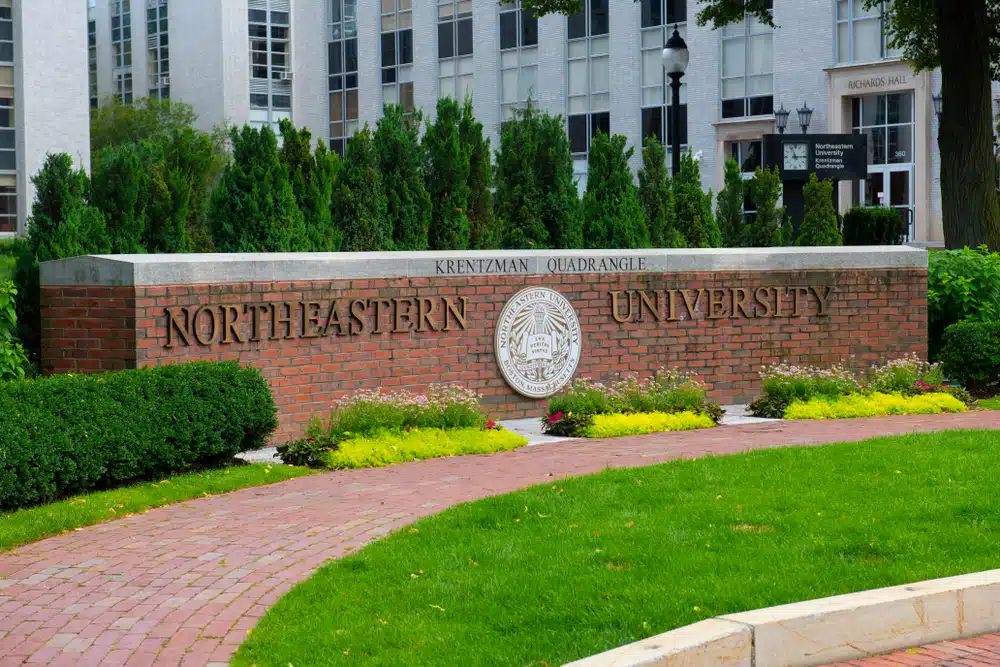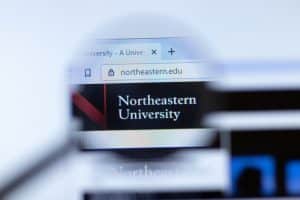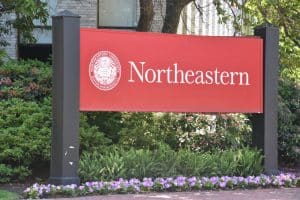How to Get into Northeastern University: Admission Requirements and Tips
Northeastern University stands out for its innovative approach to education, combining rigorous academics with real-world experience. However, its popularity and high standards make gaining admission challenging. As a prospective student, you need a clear understanding of what Northeastern looks for in its candidates.
In this article, we’ll cut through the complexity and give you straightforward strategies to improve your chances of getting into Northeastern University. From understanding the admissions criteria to crafting a compelling application, we’ve got you covered every step of the way.
Overview of Northeastern University
Founded in 1898, Northeastern University has evolved into a dynamic hub of learning and research in Boston, Massachusetts. This urban setting offers students a vibrant atmosphere, enriched by the city’s cultural and educational opportunities.
Northeastern is celebrated for its co-operative education program, which integrates classroom study with professional experience. Additionally, the university offers robust programs in engineering, business, and computer science, drawing students who seek a practical, real-world approach to learning.
In the realm of academic excellence, Northeastern holds a commendable position, ranking #53 in National Universities in the 2024 edition of Best Colleges by US News and #85 in Forbes’ list of top colleges in the US. This status reflects the university’s commitment to providing a top-tier educational experience.
The university’s impact is further highlighted by its notable faculty and alumni. Richard Roberts, a Nobel laureate and a global leader in genomics and molecular biology, is a Distinguished University Professor in the College of Science. The comedian and actor Patrice O’Neal is an alumnus. These figures exemplify the diverse and profound influence of the Northeastern community.
Understanding Northeastern’s history, strengths, and prestige can shape your application strategy. Emphasize how your goals align with the university’s unique offerings and its ethos of practical, experience-driven education. Show how you can contribute to and benefit from Northeastern’s distinguished community.
How Hard Is It to Get into Northeastern University?
Gaining admission to Northeastern University is notably competitive, as highlighted by its latest acceptance rate of just 5.6%. This low acceptance rate means that out of every 100 applicants, only about 5 are admitted.
This selectivity underscores the importance of not only meeting but exceeding the university’s academic and extracurricular benchmarks. It’s a clear indicator that applicants must bring their best to the table in all aspects of their application.
Northeastern University’s acceptance rate
Northeastern University’s acceptance rate has been on a decreasing trend over the past five years:
| Class | Acceptance Rate |
| Class of 2023 | 29% |
| Class of 2024 | 20% |
| Class of 2025 | 18% |
| Class of 2026 | 6.8% |
| Class of 2027 | 5.6% |
This decline, particularly sharp in the last two years, highlights the increasing difficulty of securing a place at this prestigious institution.
The statistics for the Class of 2027 illustrate this competitive landscape vividly. Of the 96,327 students who applied, only 5,394 were accepted, resulting in an overall acceptance rate of 5.6%. These numbers reflect the intense competition among applicants.
Prospective students must view this acceptance rate as a measure of competitiveness, not a barrier. It underscores the importance of a strong application that showcases academic excellence, unique skills, and a clear fit with Northeastern’s values.
Factors influencing the acceptance rate
When considering Northeastern’s acceptance rate, it’s essential to understand the factors that influence it at an institutional level:
- Rising Application Numbers: Increasing interest in Northeastern has led to more applications, making the process more selective.
- Academic Reputation: As the university’s academic stature grows, more high-caliber students are drawn to apply, raising the competition.
- Program Popularity: Certain sought-after programs may have lower acceptance rates due to higher demand.
- Strategic Enrollment Goals: The university’s aims, such as diversity or balancing majors, can also impact acceptance rates.
Northeastern University Admission Requirements
Gaining admission to Northeastern University involves meeting a range of criteria that go beyond just grades and test scores. Understanding these requirements is crucial for tailoring your application to what the university seeks in its prospective students:
- GPA: A high GPA is vital, as it reflects your academic consistency and ability to thrive in a challenging environment. Northeastern typically favors students who have excelled in their high school curriculum.
- High School Curriculum: Northeastern expects applicants to have completed a rigorous high school curriculum. This includes specific subject requirements to ensure you’re prepared for college-level work.
- Standardized Test Scores (Optional): Northeastern considers SAT or ACT scores, but they are optional. If you choose to submit them, competitive scores can bolster your application.
- Personal Statement: This essay provides insight into your character, aspirations, and how you align with Northeastern’s ethos. It is your opportunity to showcase your uniqueness.
- Letters of Recommendation: Strong recommendations from teachers or counselors can provide a third-party perspective on your academic abilities and personal qualities.
- Extracurricular Activities: Involvement in extracurriculars shows your engagement beyond academics, highlighting leadership, teamwork, and personal interests.
The admission process at Northeastern University is holistic. This comprehensive review ensures that admitted students are well-rounded individuals who align with Northeastern’s values and have the potential to thrive in its dynamic environment.
What Does Northeastern University Look for in Students?
Northeastern University seeks more than just academic excellence in its applicants. Understanding the values the university prioritizes is crucial for students, as it helps tailor their application to resonate with the university’s ethos.
Knowing these values allows you to highlight relevant aspects of your background and aspirations, making your application more compelling:
1. Educational strengths
At Northeastern University, a strong educational foundation is paramount. This isn’t limited to achieving high grades; it encompasses a demonstrated passion for learning and an intellectual curiosity that goes beyond the classroom.
The university values students who engage deeply with their subjects, show critical thinking skills, and display a genuine enthusiasm for expanding their knowledge. This could be through advanced coursework, research projects, or any pursuit that showcases a commitment to academic excellence and a desire for intellectual growth.
2. Entrepreneurial spirit
Northeastern highly values an entrepreneurial spirit among its students. This entails more than just business acumen; it’s about showing initiative, being innovative, and displaying a readiness to embrace and overcome challenges.
The university seeks individuals who think creatively, are not afraid to take risks, and have a drive to bring new ideas to fruition. This spirit aligns with Northeastern’s emphasis on practical, real-world experiences and its commitment to fostering leaders and innovators who can make a tangible impact in their fields.
3. Global outlook
In today’s interconnected world, Northeastern places a premium on a global outlook. This means looking for students who understand and are interested in global issues, demonstrate cultural sensitivity, and show an eagerness to engage with diverse communities.
Whether through travel, studying languages, participating in international competitions, or showing an awareness of global challenges in essays and projects, applicants who exhibit a broad worldview align well with Northeastern’s focus on global research and experiential learning.
4. Community involvement
Community involvement is a significant aspect of what Northeastern looks for. This can manifest in various forms: volunteering, leading community initiatives, or actively participating in local organizations.
Such involvement shows a commitment to social responsibility and a willingness to make a positive difference. Northeastern values students who are not just academically focused but are also committed to using their skills and knowledge for the betterment of their communities.
5. Diverse interests
Lastly, Northeastern appreciates students with diverse interests. This diversity can be in the arts, sports, technology, or any other field. Having a range of interests suggests a well-rounded character and the ability to bring unique perspectives and experiences to the campus community.
The university values students who can contribute to a vibrant, dynamic, and diverse campus environment, enriching the Northeastern community with their varied passions and hobbies.
Northeastern University GPA and SAT Requirements
At Northeastern University, your GPA and SAT scores are key indicators of your academic abilities. They play a crucial role in the admissions process for several reasons.
A high GPA shows that you can handle tough coursework and excel academically. Northeastern looks for students who have proven they can thrive in a challenging educational environment.
Though SAT scores are optional at Northeastern, they help the admissions team compare students from different schools on a common scale. Good SAT scores can enhance your application, especially if they align with Northeastern’s competitive range.
High academic metrics can also make you a strong candidate for merit-based scholarships, which are important for both recognition and financial support.
In short, maintaining a strong GPA and considering submitting competitive SAT scores (if you have them) are important strategies for presenting yourself as a well-qualified candidate for Northeastern University.
Northeastern University GPA Requirements
Northeastern University doesn’t have a stated minimum GPA requirement, but the average GPA of admitted students ranges from 4.2 to 4.6. This average shows the competitiveness of admissions at Northeastern.
This average GPA places Northeastern’s admitted students among the top academically, both within the university and across the country. It shows that admitted students typically exceed standard academic levels.
When you consider these GPA statistics, it’s important to understand that while Northeastern practices holistic admissions, a high GPA can significantly strengthen your application. It shows consistent academic achievement and potential for success in a demanding university environment.
GPA recommendations
Aim for a GPA within 4.2 to 4.6 or higher to be competitive at Northeastern. To achieve a competitive GPA for Northeastern University, consider these strategies:
- Prioritize excellence in core subjects like math, science, English, and social studies. High grades in these areas can significantly impact your GPA.
- If available, enroll in AP, IB, or honors courses. Success in these challenging classes demonstrates your readiness for college-level work and can boost your unweighted GPA.
- Don’t hesitate to get extra help in subjects where you struggle. Utilize tutoring resources, study groups, or additional practice to improve your understanding and grades.
- Consistency is key. Aim for steady, high performance throughout your high school years rather than just in your final years.
- While challenging yourself academically, be realistic about your limits. It’s better to excel in a balanced course load than to struggle with an overly demanding schedule.
- Show a genuine interest in learning beyond just getting good grades. Engage in class discussions, undertake independent projects, or participate in academic clubs to deepen your understanding and passion for subjects.
- Develop strong time management skills to balance academics with extracurricular activities, ensuring you maintain high grades while being active in other areas.
Northeastern University Course Requirements
When applying to Northeastern University, it’s important to be aware of the recommended high school courses. While these are not strict requirements, they provide a guide to the academic preparation the university values in its applicants. These courses lay the foundation for a smooth transition to college-level studies.
Successful applicants typically have completed the following subjects:
- English (Four Years): This includes courses that focus on developing strong writing and critical reading skills. Students are expected to analyze literature, compose essays, and enhance their communication abilities throughout these four years.
- History (Two Years): These courses should cover global and local histories, with a focus on understanding historical events, societal changes, and cultural contexts. This study helps students develop a broader perspective of the world and its past.
- Foreign Language (Two Years of the Same Language): Studying a foreign language for two years demonstrates linguistic proficiency and an appreciation for cultural diversity. It also serves to enhance cognitive and communication skills.
- Science (Three Years): Science courses, including biology, chemistry, or physics, are crucial. They aim to develop scientific thinking, problem-solving abilities, and an understanding of the natural world.
- Math (Three Years): A solid foundation in mathematics, including algebra, geometry, and higher-level mathematics, is necessary for developing analytical and quantitative reasoning skills.
It’s important to note that these are general recommendations. The admissions committee evaluates each applicant within the context of their school’s offerings and graduation requirements. So, if your high school curriculum does not align exactly with these recommendations due to different graduation requirements, the admissions committee will not disqualify you.
Requirements for engineering applicants
For applicants to the College of Engineering, however, the recommended subjects above are required. Additionally, applicants must have completed:
- Physics: This course is essential for understanding the basic principles of engineering. It lays the groundwork for more advanced studies in the field.
- Chemistry: A foundational knowledge of chemical processes and materials is required, which is crucial in many engineering fields.
- Precalculus: This course is necessary for grasping the advanced mathematics involved in engineering coursework. It prepares students for the rigorous mathematical challenges they will face in their engineering studies.
Adhering to these course recommendations and requirements is crucial for a successful application, especially for those targeting the highly competitive engineering program at Northeastern University. These courses ensure that students are well-prepared for the academic rigor and challenges they will encounter at the university.
Course selection tips
When choosing high school courses with an eye on applying to Northeastern University, it’s essential to consider the following tips:
- First and foremost, align your course selection with Northeastern’s recommendations. Focus on completing four years of English, two years of history, two years of the same foreign language, three years of science, and three years of math.
- Opt for AP, IB, or honors classes if they are available. These advanced courses demonstrate your ability to handle college-level work and can be a significant factor in the admissions process.
- Choose courses in subjects you are genuinely interested in and where you can excel. This balance is important for maintaining a high GPA while also showing your passion and engagement in specific areas.
- If you have a specific major or career path in mind, select courses relevant to that field. For example, prospective engineering students should prioritize physics, chemistry, and precalculus.
- Consult with your high school counselors or teachers. They can provide valuable advice on course selection based on your academic strengths, college goals, and the requirements of universities like Northeastern.
- While meeting your high school’s graduation requirements is important, aim to go beyond the minimum. Northeastern’s competitive admissions process favors students who have pursued a more challenging high school curriculum.
- Try to maintain a consistent level of rigor throughout your high school years. A strong academic performance in your later years is good, but consistency from the beginning demonstrates sustained commitment and effort.
Northeastern University SAT Requirements
The SAT is a standardized test that measures a high school student’s readiness for college. It assesses skills in critical reading, mathematics, and writing, aiming to provide colleges with a common data point for comparing all applicants.
Northeastern does not have an absolute minimum SAT score requirement, but these statistics provide insight into the competitive nature of its applicant pool:
| Average SAT Score | 25th Percentile SAT Score | 75th Percentile SAT Score |
| 1500 | 1450 | 1535 |
An average SAT score of 1500 places Northeastern University’s admitted students among the top performers nationally. This reflects the university’s high academic standards and the strong competition among applicants.
Scoring at or above the 75th percentile (1535) indicates your SAT score is higher than 75% of admitted students, positioning you favorably in terms of standardized testing.
On the other hand, scoring at the 25th percentile (1450) means your SAT score is lower than 75% of admitted students. While not disqualifying, it suggests that other aspects of your application should be particularly strong to compensate.
These SAT statistics should be interpreted as a guide, not a strict cut-off. While high SAT scores can enhance your application, Northeastern’s holistic admissions process means that your essays, extracurricular activities, GPA, and other factors are also crucial.
SAT recommendations
Aim for an SAT score in the 75th percentile range (1535) to strengthen your application. To optimize your SAT score for a competitive application to Northeastern University, consider the following strategies:
- Begin your SAT preparation well in advance of the test date. This gives you ample time to understand the format, practice, and identify areas for improvement.
- Regularly take full-length practice tests under timed conditions. This helps in building endurance and familiarizing yourself with the test format and types of questions.
- Identify and spend extra time on sections where you are weakest. Whether it’s critical reading, math, or writing, targeted practice can lead to significant improvements.
- Invest in reputable SAT prep books, online resources, and practice materials. Quality study aids can provide valuable insights and techniques for tackling different types of questions.
- If self-study isn’t enough, consider enrolling in an SAT prep course. These courses offer structured learning, expert guidance, and can keep you motivated.
- Understand and practice key test-taking strategies, such as time management, educated guessing, and question prioritization.
- Consistency is key. Regular and continuous practice over time is more effective than cramming just before the test.
- If possible, take the SAT more than once. Many students improve their scores on a second attempt as they become more comfortable with the test.
Northeastern University ACT Requirements
The ACT is a standardized test that evaluates high school students’ readiness for college. It covers four areas: English, mathematics, reading, and science, with an optional writing test. The ACT aims to provide a comprehensive assessment of a student’s academic skills.
Northeastern does not enforce an absolute minimum ACT score requirement, but these figures indicate the high level of competitiveness among applicants:
| Average ACT Score | 25th Percentile ACT Score | 75th Percentile ACT Score |
| 34 | 33 | 35 |
The typical ACT scores for Northeastern’s admitted students are among the highest nationally, reflecting the university’s stringent academic standards and the strong academic profile of its applicants.
Scoring at or above the 75th percentile (35) puts you in a strong position, as your ACT score is higher than the majority of admitted students.
Conversely, an ACT score at the 25th percentile (33) suggests that your score is lower than 75% of admitted students. While not necessarily a disadvantage, it does mean that other elements of your application, such as GPA, essays, and extracurricular activities, should be particularly strong.
These statistics should be viewed as guidelines rather than strict thresholds. While high ACT scores are advantageous, Northeastern’s holistic admissions process considers other aspects of your application equally important.
ACT recommendations
To enhance your application, aim for an ACT score at or around the 75th percentile (35). To aim for a top-tier ACT score for your application to Northeastern University, consider these effective strategies:
- Start your ACT preparation well in advance. This allows you sufficient time to familiarize yourself with the test format and content.
- Regular practice tests are crucial. They help you get used to the timing and pace of the ACT, and let you identify areas where you need improvement.
- Identify which sections of the ACT are more challenging for you and allocate more time to improving in these areas.
- Invest in reputable ACT prep books and online materials. Quality resources offer practice questions, test-taking strategies, and comprehensive content reviews.
- If self-study isn’t yielding the desired results, an ACT prep course can provide structured learning and expert guidance.
- Understand key strategies like time management, prioritizing questions, and handling the optional writing section effectively.
- Regular and consistent study sessions are more beneficial than last-minute cramming.
- Many students find that their scores improve on a second or third attempt at the ACT. If your first score isn’t what you hoped for, consider retaking the test.
Is Northeastern University Test-Optional?
Northeastern University has adopted a test-optional policy. This means that applicants are not required to submit SAT or ACT scores as part of their application.
If you believe your SAT or ACT scores accurately reflect your academic strengths and would enhance your application, you can choose to submit them. However, if you feel that your scores do not adequately represent your potential or if you were unable to take these tests, you can opt not to include them without disadvantage.
Northeastern University’s move to a test-optional policy aligns with a broader trend in higher education recognizing that standardized test scores may not always be the best or only indicator of a student’s academic ability and potential. This approach is part of an effort to make higher education more accessible and to evaluate students more holistically.
The policy acknowledges the diverse backgrounds and experiences of applicants and aims to provide an equitable opportunity for all students to showcase their strengths and suitability for Northeastern’s rigorous academic environment.
Does Northeastern University Superscore SAT and ACT?
Northeastern University superscores both the SAT and ACT for applicants who choose to submit their scores. Superscoring means that the university considers only the highest section scores across all the dates you took the SAT or ACT, combining them to form the highest possible composite score.
As an applicant, this policy can work to your advantage in several ways. If you take the SAT or ACT multiple times, Northeastern will consider the highest scores from each section, potentially giving you a higher composite score than any single test date.
Knowing that Northeastern superscores, you can focus on improving specific sections in subsequent tests if you’re not satisfied with your initial scores. This approach can reduce the pressure of achieving your best possible score in a single sitting, allowing you to demonstrate your highest academic potential over time.
The superscoring policy at Northeastern offers you the opportunity to present the strongest aspect of your standardized test performance, aligning with the university’s commitment to a holistic and fair review of each applicant.
Northeastern University Application Essays
The application essays are a vital component of your application to Northeastern University. They provide an opportunity for you to share your unique experiences, perspectives, and aspirations.
Unlike test scores and GPAs, essays are your chance to speak directly to the admissions committee, offering a glimpse into who you are beyond the numbers. A well-crafted essay can make a significant impact on your application, helping you stand out in a competitive applicant pool.
Northeastern requires applicants to submit a personal statement, choosing from the prompts provided by either the Common Application or the Coalition Application. The university does not require supplemental essays.
Common Application prompts
If submitting an application through the Common Application, you need to respond to one of the following prompts (250-650 words):
- Some students have a background, identity, interest, or talent that is so meaningful they believe their application would be incomplete without it. If this sounds like you, then please share your story.
- The lessons we take from obstacles we encounter can be fundamental to later success. Recount a time when you faced a challenge, setback, or failure. How did it affect you, and what did you learn from the experience?
- Reflect on a time when you questioned or challenged a belief or idea. What prompted your thinking? What was the outcome?
- Reflect on something that someone has done for you that has made you happy or thankful in a surprising way. How has this gratitude affected or motivated you?
- Discuss an accomplishment, event, or realization that sparked a period of personal growth and a new understanding of yourself or others.
- Describe a topic, idea, or concept you find so engaging that it makes you lose all track of time. Why does it captivate you? What or who do you turn to when you want to learn more?
- Share an essay on any topic of your choice. It can be one you’ve already written, one that responds to a different prompt, or one of your own design.
Coalition Application prompts
On the other hand, if you prefer the Coalition Application, you need to pick one from the prompts below (500-650 words):
- Tell a story from your life, describing an experience that either demonstrates your character or helped to shape it.
- What interests or excites you? How does it shape who you are now or who you might become in the future?
- Describe a time when you had a positive impact on others. What were the challenges? What were the rewards?
- Has there been a time when an idea or belief of yours was questioned? How did you respond? What did you learn?
- What success have you achieved or obstacle have you faced? What advice would you give a sibling or friend going through a similar experience?
- Submit an essay on a topic of your choice.
These prompts offer a wide range of topics, allowing you to choose one that resonates most with your personal experiences and narrative. Your essay should not only answer the prompt clearly but also reflect your individuality and how you would contribute to the Northeastern community.
Essay tips
When crafting your essay for Northeastern University, specific strategies can help you create a compelling and memorable piece:
- Write in your own voice and stay true to yourself. Authenticity resonates more than trying to fit what you think the admissions officers want to hear.
- Choose a topic that showcases your personal growth, learning experiences, or how you’ve overcome challenges. Colleges seek students who are self-aware and resilient.
- Use specific examples and anecdotes to illustrate your points. This approach brings your story to life and makes it more engaging.
- Don’t just describe what happened. Reflect on the significance of your experiences and how they have shaped your perspectives or goals.
- Make sure your essay addresses every aspect of the prompt. Stay on topic and ensure that your response is clear and focused.
- Structure your essay with a clear introduction, body, and conclusion. A well-organized essay makes your narrative easier to follow.
- Don’t settle for your first draft. Edit and revise your essay multiple times for clarity, grammar, and flow. Ask teachers, counselors, or family members for feedback.
- Stand out by avoiding clichés. Use original language and perspectives to make your essay unique.
- Instead of trying to cover too much, focus on a specific aspect or moment in your life. A more focused narrative is often more powerful.
Northeastern University Recommendation Letters
Recommendation letters play a crucial role in your application to Northeastern University. They offer a unique perspective on your academic abilities, character, and potential, as seen through the eyes of those who have taught and guided you.
A well-written recommendation can provide depth to your application and corroborate your accomplishments and personal qualities, adding a layer of credibility and insight that grades and test scores cannot convey.
Northeastern University requires two specific types of recommendation letters:
- Teacher Recommendation: This should come from a teacher who has taught you in a core academic subject. Ideally, it should be from a teacher who knows you well and can speak to both your academic skills and personal attributes in the classroom.
- Counselor Recommendation: This recommendation is typically from your school counselor. It should provide a broader view of your academic journey, personal growth, and your contributions to the school community.
You also have the option to submit 1-2 additional recommendation letters. However, due to the large volume of applications Northeastern receives, be aware that these additional letters may not always be considered. It’s essential that these optional recommendations provide new insights or perspectives not already covered in the required letters.
Tips for requesting recommendation letters
To ensure your recommendation letters strongly support your application to Northeastern University, consider these strategies:
- Select recommenders who know you well and can speak to your strengths, both in and out of the classroom.
- Give your recommenders a summary of your academic and extracurricular achievements, as well as your goals, to help them write a more personalized letter.
- Ask for recommendations well in advance of deadlines to give your recommenders enough time to write thoughtful letters.
- Send a gentle reminder as the deadline approaches, if necessary.
- Always thank your recommenders for their time and effort in supporting your application.
Tips for recommenders
If you’re writing a recommendation letter for a student applying to Northeastern University, keep these points in mind:
- Focus on what makes the student unique. Share specific anecdotes and examples that illustrate their qualities.
- Talk about how the student has evolved academically and personally during your time with them.
- Vague praises are less effective. Provide detailed observations and insights into the student’s abilities and character.
- If possible, align your insights with the values and qualities that Northeastern University appreciates, such as intellectual curiosity and community involvement.
- While honesty is crucial, also ensure that your letter is overall positive and supportive of the student’s application.
Extracurricular Activities for Northeastern University Application
Extracurricular activities play a vital role in your application to Northeastern University. They offer a window into who you are outside the classroom and demonstrate your personal interests, skills, and commitments.
These activities can significantly enhance your application by showcasing your leadership, teamwork, initiative, and how you engage with your community. They provide a fuller picture of your character and potential contributions to Northeastern’s campus life.
When considering extracurricular activities for your Northeastern application, keep in mind the university’s core values and the nature of its programs. Activities that Northeastern typically looks for include:
- Leadership Roles: Positions in student government, clubs, or community organizations show your ability to lead, organize, and impact others.
- Community Service and Social Activism: Involvement in community service or social activism aligns with Northeastern’s focus on social responsibility and community engagement.
- Entrepreneurial Initiatives: Starting a project, a club, or a small business can demonstrate your entrepreneurial spirit, a quality highly valued at Northeastern.
- Research Projects: Engagement in research, especially in areas related to your intended major, can be particularly appealing, reflecting intellectual curiosity and a desire for knowledge creation.
- Creative and Artistic Pursuits: Activities in the arts, music, writing, or other creative fields can showcase your diverse talents and innovative thinking.
- International Exposure: Experiences like studying abroad or participating in international competitions can highlight your global outlook and adaptability.
- Athletics and Team Sports: Involvement in sports can indicate teamwork, discipline, and perseverance.
In summary, Northeastern University values extracurricular activities that resonate with its ethos of innovation, leadership, and community involvement. Your activities should reflect not only what you’ve achieved but also who you are and what you’re passionate about.
Extracurricular activities tips
When selecting and presenting your extracurricular activities for your application to Northeastern University, consider the following tips to make a strong impression:
- Focus on activities where you have made a significant impact or held leadership roles, rather than a long list of casual involvements.
- Demonstrate your dedication to activities over time, highlighting any progression to positions of greater responsibility or achievement.
- Choose activities that align with your academic interests or career goals, as this shows consistency and purpose in your pursuits.
- When describing activities, emphasize the impact you’ve had, whether it’s on a team, a community, or an individual.
- Show a range of interests. If you have a mix of academic clubs, arts, sports, or community service, it showcases a well-rounded personality.
- Choose activities that genuinely interest you, as your passion and authenticity will come through more strongly than in activities chosen just to impress admissions officers.
- Highlight instances where you’ve taken the lead or started new initiatives, as these qualities are highly valued by Northeastern.
- Don’t hesitate to include unique or unconventional hobbies or interests, as they can make your application stand out.
- Try to connect your activities to the core values and culture of Northeastern University, such as innovation, community service, and global awareness.
Northeastern University Application Requirements
Applying to Northeastern University involves a comprehensive set of requirements that allow the admissions committee to evaluate your academic and personal qualifications. Understanding and meticulously following these requirements is key to submitting a successful application.
Mandatory requirements
- Common or Coalition Application: This is the primary application form, which includes your basic information, extracurricular activities, and other pertinent details. Ensure all sections are completed accurately and thoroughly to present a clear and comprehensive picture of your background.
- Personal Statement: This is part of your Common or Coalition Application, where you respond to selected prompts. Use this opportunity to showcase your personality, experiences, and what makes you unique.
- Self-Reported Academic Record: This platform allows you to report your coursework and grades directly to the university. This can be accessed after submitting your application. Double-check all entries for accuracy and completeness.
- Official High School Transcript: This must be submitted by your high school counselor. Follow up with your counselor to ensure timely submission.
- Counselor Recommendation: This is a letter from your school counselor providing insight into your academic and personal development. Discuss your college aspirations with your counselor to help them tailor their recommendation.
- Teacher Recommendation: A recommendation from a teacher in a core academic subject is required. Choose a teacher who knows you well and can speak to your strengths and growth.
- Application Fee or Waiver: The application fee is $75, but waivers are available for eligible students. If you need a fee waiver, start the process early to meet application deadlines.
Optional requirements
- Standardized Test Scores: SAT or ACT scores are optional but can be submitted. Submit your scores if they are strong and reflect your academic abilities positively.
- Additional Recommendation: You may submit one or two more, but they might not always be considered. Only submit additional letters if they provide new insights into your abilities and character.
- Portfolio: This is optional but highly encouraged for applicants to the College of Arts, Media, and Design. Showcase your best work that reflects both your skills and creativity.
Other requirements
- English Proficiency Test Scores: This is required for non-native English speakers. Acceptable tests include Cambridge English, Duolingo English Test, IELTS, PTE, and TOEFL. Prepare and take these tests well in advance to ensure your scores are available by application deadlines.
How to Apply to Northeastern University
Applying to Northeastern University is a structured process that requires careful planning and attention to detail. It’s a journey that begins long before you submit your application and continues until you receive your admission results.
1. Early preparation and planning
Begin by researching Northeastern’s programs, values, and culture to ensure it aligns with your academic and personal goals. Plan your high school courses and extracurricular activities in line with what Northeastern values. Visit the campus or attend virtual information sessions to gain deeper insights into the university experience.
2. Academic preparation
Strive for strong academic performance throughout high school. If you decide to submit standardized test scores, prepare for the SAT or ACT exams. Utilize practice tests and consider preparatory courses to maximize your potential scores.
3. Application components compilation
This phase involves compiling all the components of your application. This includes writing your personal statement, obtaining your high school transcript, and securing your letters of recommendation. Start early to give yourself ample time to write and revise your essays and to remind your recommenders.
4. Submission of application
Fill out and review your Common or Coalition Application thoroughly. Ensure that all parts of your application, including optional components like test scores or additional recommendations, are complete and accurate. Submit your application well before the deadline to avoid any last-minute technical issues.
5. Post-submission and awaiting results
Once your application is submitted, you can track its status through Northeastern’s portal. Use this time to apply for financial aid and scholarships if needed. Stay engaged with the university by attending prospective student events and keeping up with Northeastern news.
How to Submit Supplemental Materials to Northeastern University
Submitting supplemental materials to Northeastern University can enhance your application, especially for certain majors. It’s an opportunity to showcase your talents and interests beyond the standard application requirements.
While portfolios are optional, they are strongly encouraged for all applicants to the College of Arts, Media, and Design. Your portfolio should align with your intended field of study. Submit only one portfolio.
Supplemental materials like portfolios can be submitted through your Application Status Check portal after applying to Northeastern. To have this option, select the “College of Arts, Media, and Design” as your home college on your main application.
Step-by-step guide
By following these steps, you can successfully submit your supplemental materials, offering a more comprehensive view of your abilities and interests to the admissions committee at Northeastern University:
- Fill out your Common or Coalition Application to Northeastern University.
- Select the “College of Arts, Media and Design” as your intended college.
- After submitting your application, log in to your Application Status Check portal provided by Northeastern.
- Organize your portfolio, ensuring it reflects your best work relevant to your intended major or the most appropriate field.
- Fill out all necessary forms, including the Academic Profile and Media Uploads. Prepare a Personal Statement (500 words maximum) to accompany your portfolio.
- Upload your portfolio through the Application Status Check. Double-check that all components are included and properly formatted.
- Remember, only one portfolio submission is permitted. Additional portfolios will not be reviewed.
Northeastern University Scholarships and Financial Aid
At Northeastern University, a significant portion of students receive financial assistance, with over 70% of first-year students benefiting from some form of aid. This support includes a mix of merit-based scholarships, need-based grants, and other financial aid options.
Merit-based scholarships are awarded based on academic achievement, artistic talents, or leadership qualities, and do not require repayment. Need-based aid, on the other hand, is determined by the student’s financial situation and can include grants, loans, and work-study opportunities.
Northeastern’s commitment to providing financial assistance ensures that a diverse range of students have access to the educational opportunities it offers.
Scholarship tips
To enhance your chances of receiving the financial support you need to pursue your educational goals, follow these guidelines:
- Begin your financial aid research and applications well ahead of deadlines to ensure you have ample time to gather all necessary information and documents.
- Familiarize yourself with the criteria for both merit-based scholarships and need-based aid. Knowing what each type of aid entails can help you target your applications more effectively.
- For U.S. residents, filling out the Free Application for Federal Student Aid (FAFSA) is essential for federal student aid. Additionally, if you’re applying for institutional need-based aid, you must complete the CSS Profile. Note that the CSS Profile is not required for students seeking federal student aid only.
- In addition to Northeastern’s financial aid, look for scholarships from external sources for which you may qualify.
- When completing applications for financial aid, ensure that all information is accurate and complete to avoid delays or issues in your aid assessment.
- Meet all the application deadlines for scholarships and financial aid to maximize your chances of receiving aid.
- If you have questions or need help with the financial aid process, don’t hesitate to contact Northeastern’s financial aid office for guidance and clarification.
Northeastern University Regular Decision vs Early Decision vs Early Action
When applying to Northeastern University, you have the choice between Regular Decision, Early Decision, and Early Action. Each of these application options has its unique features and timelines, and understanding these differences is key to making an informed decision about your application strategy.
Regular Decision is the standard application process where you submit your application by the regular deadline and receive a decision by the standard announcement date. It offers the most flexibility, as you’re not obligated to attend if accepted.
Northeastern offers two Early Decision plans: ED I and ED II. These are binding agreements, meaning if you are accepted, you are committed to attending Northeastern and must withdraw applications from other institutions. Early Decision is suitable if Northeastern is your top choice and you’re certain about attending.
Northeastern also offers an Early Action option. This is a non-binding early application process. You receive an early response from the university but are not committed to attend if accepted. Early Action is a good choice if you prefer to receive an early decision without the binding commitment of Early Decision.
Which application plan to choose
If Northeastern is your clear first choice and you’re ready to commit, Early Decision can be a strong choice. However, if you prefer the flexibility to compare offers and financial aid packages from different universities, Early Action or Regular Decision might be more suitable.
Early Action, offering the advantage of an early response without the binding commitment, can be a favorable middle ground.
Northeastern University Application Deadlines
When planning your application to Northeastern University, it’s important to be aware of the specific deadlines for each application option. Here are the key dates:
| Application Option | Deadline | Notification Date |
| Early Decision I | November 1 | January 1 |
| Early Action | November 1 | February 15 |
| Early Decision II | January 1 | March 1 |
| Regular Decision | January 1 | April 1 |
Marking these deadlines on your calendar and planning accordingly will ensure that your application is submitted on time, allowing you a stress-free application process.
How Hard is it to Get into Northeastern University?
Gaining admission to Northeastern University is increasingly challenging, a reflection of the university’s rising prestige and selectivity. For the Class of 2027, the acceptance rate hovered around a mere 5.6%, a notable decrease from previous years.
Northeastern received a staggering 96,327 applications but only aimed to enroll about 2,600 students on its main campus, plus 200-300 additional students at its London and Oakland campuses.
This plummeting acceptance rate indicates a highly competitive admissions landscape. Prospective students face stiff competition, not only in numbers but in the quality of applications. The median SAT score for the Class of 2026 was 1500, and 77% of admitted students were in the top 10% of their high school class.
This trend suggests that high academic achievement and a robust portfolio of extracurricular activities are essential for a strong application.
Northeastern’s holistic admissions approach also evaluates factors beyond grades and test scores. This includes extracurricular involvement, personal essays, letters of recommendation, and demonstrated interest in the university.
The evolving dynamics of Northeastern’s admissions process underline the need for applicants to present a well-rounded and compelling profile.
Benefits of Attending Northeastern University
Northeastern University, a prestigious institution located in Boston, Massachusetts, offers a dynamic and engaging educational experience. Renowned for its innovative approach to learning, the university attracts students who are eager to excel in their academic and professional pursuits.
World-Class Academics and Research Opportunities
Northeastern University stands out for its strong academic programs, particularly in engineering, computer science, and business. The university offers a variety of undergraduate and graduate programs, fostering an environment where research and innovation thrive.
Students have access to state-of-the-art facilities and resources and are encouraged to participate in research projects, even at the undergraduate level. This hands-on approach enhances learning and prepares students for real-world challenges.
Unique Co-Op Program and Career Advancement
A hallmark of the Northeastern experience is its co-op program, which integrates classroom learning with professional experience. Students can work in their field of study for six months, gaining valuable work experience and making industry connections.
This program significantly boosts employability post-graduation, with many students receiving job offers from their co-op employers.
Diverse and Inclusive Community
Northeastern prides itself on a diverse and inclusive campus community. Students from all over the world bring various perspectives and experiences. This cultural diversity enhances the educational experience, fostering a global perspective among students. The university also offers numerous clubs, organizations, and events celebrating and supporting this diversity.
How Can an International Student Get into Northeastern University?
Northeastern University, a dynamic learning hub in the United States, is a popular choice for over 20,000 international students from more than 147 countries. If you’re a non-U.S. citizen applying from anywhere in the world, or a U.S. citizen applying from outside the U.S., this guide is for you.
Application Process: A Step-by-Step Guide
- Choosing the Right Application: International students must apply through the Common Application or Coalition Application. It’s crucial to use your name as it appears on your passport on the application and supporting documents.
- Academic Records: Your academic journey, including high school transcripts and national, regional, or international examination results, is key. Ensure your high school sends your transcript directly to Northeastern. For first-year applicants, transcripts should include final grades from grades 9, 10, and 11. A final high school transcript is needed if you’re a transfer applicant.
- Self-Reported Academic Record (SRAR): For first-year applicants, SRAR is a must. After submitting your application, you can access SRAR through the Application Status Check portal.
- University Transcripts: Transfer students from international universities should provide a certified transcript evaluation, ensuring it indicates U.S. accreditation equivalence and includes a course-by-course credit and grade conversion.
- National Exams: Submitting final results or predicted grades for national exams is vital. Examples include IB, GCE A-Level, and Indian Standard XII board exams.
- Standardized Testing: Northeastern is test-optional. However, submitting SAT or ACT scores is optional and might enhance your application.
- English Proficiency: Proving your English proficiency is essential, especially for non-native speakers. Accepted tests include TOEFL, IELTS, and others. You might sometimes qualify for a waiver based on your educational background.
- Interviews: While optional, submitting an unscripted video interview through InitialView or Vericant can add value to your application.
- Financial Documentation: International students must complete the Declaration and Certification of Finances to demonstrate the ability to finance their education. While international students are ineligible for need-based financial aid, merit scholarships ranging from $10,000 to $28,000 annually are available.
All test results and transcripts should be sent directly to Northeastern. For documents not in English, official translations are required. You can submit your documents online via the Common Application or Coalition Application email and mail.
Getting into Northeastern University as an international student requires careful preparation and adherence to their application requirements. By following these guidelines and showcasing your academic abilities and English proficiency, you can join this diverse and vibrant academic community.
How to Get into Northeastern University as a Transfer Student
To be eligible for transfer, you should have completed at least 12 semester hours of college-level coursework after high school. You’re eligible if you’ve attempted at least one semester of full-time coursework and stayed enrolled through the add/drop period.
Keep an eye on the application timeline by checking Northeastern’s Deadlines and Decisions page, especially since the Fall 2024 application is already open.
Application Process: What You Need
- Choose Your Application: You can apply using the Transfer Common Application or Coalition Application.
- Application Fee: Be prepared to pay a $75 application fee.
- Transcripts: You must submit official college transcripts from all the institutions you’ve attended. Don’t forget your final high school transcript or GED/HiSET score report.
- College Report: This form should be completed by your current or previous school’s Registrar’s Office or Dean. It’s a must-have for your application to be reviewed.
Additional Requirements
- Academic Evaluation: Get an evaluation from a professor, academic advisor, or employer, which can be submitted online.
- Standardized Testing: Northeastern is test-optional through 2026. This means it’s your choice to submit SAT or ACT scores. Submitting results from an English Language Test or requesting a waiver is necessary for non-native English speakers.
What Else to Include?
- Current Year Courses: If you’re currently studying, include a list or unofficial transcript showing your courses.
- Optional Materials: Veterans or active military members can submit relevant transcripts. A Mid-term Report and Certified Transcript Evaluation are highly recommended, especially for international credits.
- English Proficiency: All applicants must prove their English proficiency regardless of nationality. This can be through test scores, being a native speaker, or studying in an English-speaking environment for four years.
Special Instructions for International Students
Non-U.S. citizens must submit the Declaration and Certification of Finances form. This form is essential to confirm the financial resources available to you, as Northeastern can’t offer state or federally-funded financial support to international students.
Applying to Specialized Programs
If you’re eyeing the College of Arts, Media, and Design, consider submitting a portfolio through the Application Status Check after applying. This includes forms like the Academic Profile, Media Uploads, and a Personal Statement.
Can an Average Student Get into Northeastern University?
Gaining admission to Northeastern University is highly competitive, and the school’s low acceptance rate reflects this. However, ‘average’ students shouldn’t be discouraged.
While academic excellence is crucial, Northeastern looks beyond grades and test scores. Here are some aspects that can bolster an average student’s application:
- Extracurricular Involvement: Engage in activities that demonstrate leadership, commitment, and passion. Depth of involvement often trumps breadth.
- Personal Statement: A compelling personal essay can significantly impact your application. Use it to narrate your unique story, challenges overcome, personal growth, and aspirations.
- Letters of Recommendation: Strong recommendations from teachers or mentors who can vouch for your character and potential can be influential.
- Unique Talents or Experiences: Your unique skills, experiences, or perspectives can make your application stand out.
- Demonstrated Interest: Show genuine interest in Northeastern through campus visits, interactions with admissions officers, and thorough research about the university.
An average student with a strong, well-rounded application still has a chance at Northeastern University, provided they effectively showcase their strengths and potential.
How to Get into Northeastern University with a Low GPA
A low GPA isn’t an automatic barrier to entry at Northeastern University, but it does mean you need to strengthen other application areas. Here are some strategies to consider:
- Excelling in Standardized Tests: High SAT or ACT scores can help balance a lower GPA. Northeastern looks at these scores alongside your academic record to assess your readiness for college-level work.
- Highlighting Extracurricular Achievements: Demonstrate leadership, commitment, and skills through your involvement in extracurricular activities. This can include sports, clubs, volunteer work, or personal projects.
- Crafting a Compelling Personal Statement: Your personal statement is an opportunity to tell your unique story. Discuss your journey, challenges, learning experiences, and how they’ve prepared you for college.
- Securing Strong Letters of Recommendation: Obtain recommendations from teachers, counselors, or mentors who can attest to your abilities and potential. A strong endorsement can significantly impact your application.
- Demonstrating Improvement and Determination: If your GPA improved over time, highlight this growth. Discuss any obstacles you’ve overcome and how they’ve shaped you into a resilient and determined individual.
By focusing on these areas, applicants with a lower GPA can still present a compelling case for admission to Northeastern University. Remember, the university values diverse talents and perspectives, and a holistic approach is key to showcasing your strengths.
What Makes Northeastern University Unique?
Northeastern University stands out in several key areas, making it a distinct choice for higher education.
Innovative Educational Approach
At the heart of Northeastern’s uniqueness is its innovative educational approach. The university has pioneered experiential learning, seamlessly integrating classroom studies with real-world experience.
This approach is embodied in its cooperative education program, or “co-op,” allowing students to work in full-time, professional roles related to their major for up to six months. This hands-on experience is invaluable, giving students a distinct edge in their post-graduation endeavors.
Global Network and Campuses
Northeastern boasts a global network that spans several continents. With Boston, London, and Oakland, CA campuses, students can experience diverse cultures and global perspectives, enhancing their educational journey.
The university’s global expansion doesn’t stop here; it continually seeks to broaden its reach, providing students with a truly international education.
Focus on Research and Innovation
Research and innovation are central to Northeastern’s ethos. The university encourages students to engage in research early in their academic careers. This focus on research fosters a culture of inquiry and innovation, allowing students to contribute to groundbreaking discoveries and advancements in various fields.
Emphasis on Diversity and Inclusion
Northeastern is committed to fostering a diverse and inclusive environment. The university’s initiatives and programs aim to increase the recruitment and enrollment of under-represented and minority students, reflecting its belief in the value of diverse perspectives and experiences.
What Does the Northeastern University Application Look Like?
Applying to Northeastern University involves a series of steps and requirements. Here’s a breakdown of what to expect in the application process:
- Submission of Academic Records: Applicants must submit transcripts from high schools and, if applicable, colleges attended. For international applicants, certified transcript evaluations are required.
- English Proficiency Requirement: Non-native English speakers must demonstrate their proficiency in English through tests like TOEFL, IELTS, or Duolingo English Test or qualify for a waiver.
- Standardized Testing (Optional for 2022-2023): Applicants can submit SAT or ACT scores, which are not mandatory.
- Personal Statement: A crucial part of the application, the personal statement offers a chance for students to showcase their unique talents, experiences, and motivations.
- Recommendation Letters: Northeastern requires two letters of recommendation, preferably from academic sources, to provide insight into the applicant’s abilities and character.
- Demonstration of Interest: Engaging with the university through campus visits, virtual events, and explicit mention of Northeastern’s unique programs in application materials can enhance an applicant’s prospects.
- Additional Requirements for International Students: These include visa documentation, financial documentation, and additional academic records pertinent to various international education systems.
- Portfolio Submission (if applicable): Applicants to certain programs, such as those in the College of Arts, Media, and Design, may need to submit a portfolio.
Is Northeastern University a Good School for You?
Determining if Northeastern University is the right fit involves considering several factors unique to your educational and career goals.
Alignment with Academic Interests
Northeastern offers various programs across its colleges, including cutting-edge majors in computer sciences, business, and health sciences. Its focus on experiential learning and research opportunities makes it ideal for students seeking practical experience alongside academic learning.
Compatibility with Learning Style
If you thrive in an environment that emphasizes practical experience and hands-on learning, Northeastern’s co-op program could be highly beneficial. This unique aspect of Northeastern’s curriculum allows students to gain real-world experience, making learning more engaging and applicable.
Environment and Campus Life
Consider whether the vibrant, urban setting of Boston and the global opportunities available at Northeastern align with your preferences. The university’s commitment to diversity and inclusion and its robust student life offerings make it a lively and dynamic place to study.
Career Aspirations
Northeastern’s strong industry connections and emphasis on experiential learning make it an excellent choice for those looking to enter the workforce with practical experience and professional networking opportunities. Its global presence also provides a platform for those seeking international careers.
How Selective is Northeastern University?
Northeastern University’s selection process has become increasingly competitive over recent years, with the acceptance rate reaching an all-time low for the Class of 2027.
The estimated acceptance rate hovered around 5.6% for the Boston campus, a stark contrast to previous years, where it was significantly higher. This trend underscores the university’s evolving status as a highly sought-after destination for higher education.
The sheer volume of applications, which stood at 96,327 for the 2023-24 freshman class, further illustrates the university’s growing popularity and selectivity. As a result, prospective students face a highly competitive admissions environment.
The university emphasizes academic excellence and a diverse range of talents and backgrounds in its student body. Applicants are evaluated holistically, emphasizing academic performance, standardized test scores (despite the test-optional policy introduced during the COVID-19 pandemic), and extracurricular involvement.
Given this context, applicants should know that gaining admission to Northeastern requires more than stellar grades. The university seeks students who demonstrate intellectual curiosity, a commitment to community involvement, and the potential to contribute meaningfully to the campus environment.
Therefore, applicants must present a well-rounded profile, showcasing their strengths across various areas, not limited to academic achievement alone.
Should You Apply to Northeastern University?
When considering whether to apply to Northeastern University, it’s essential to assess various factors to determine if they align with your academic and personal goals. Key points to consider:
- Academic Fit: Does Northeastern offer the majors or programs that interest you? With over 175 undergraduate majors, Northeastern provides diverse academic options.
- Campus Environment: Are you looking for an urban campus experience? Northeastern’s location in Boston offers a vibrant city experience and a strong academic environment.
- Competitiveness: Can you present a strong application? Given the low acceptance rate, applicants should have high academic standings and robust extracurricular profiles.
- Early Decision Consideration: If Northeastern is your top choice, consider applying Early Decision to demonstrate commitment and possibly increase your chances of acceptance.
- Financial Aspect: Assess the financial implications, including tuition costs and available financial aid or scholarships.
- Research Opportunities: If you’re interested in research, Northeastern offers numerous opportunities, especially in science and technology.
- Internship and Co-op Programs: Northeastern is renowned for its co-op program, integrating classroom learning with professional experience.
- Cultural Fit: Consider whether the university’s values and campus culture align with your preferences and personality.
- Career Goals: Evaluate how Northeastern’s resources, alumni network, and career services can support your professional aspirations.
- Location Preferences: The urban setting in Boston is ideal for students seeking a dynamic city experience with cultural, educational, and recreational opportunities.
How Does Northeastern University Review Applications?
Northeastern University employs a holistic approach to reviewing applications, meaning that each application component is considered in the context of your overall profile.
This approach allows the admissions committee to view who you are beyond just your academic credentials comprehensively. Here’s a breakdown of key components and how they are evaluated:
- Academic Performance: Your GPA and the rigor of your high school curriculum are critical. Northeastern looks for students who have challenged themselves with advanced courses (AP, IB, honors) and maintained strong grades.
- Standardized Test Scores: While Northeastern has adopted a test-optional policy, submitting high SAT or ACT scores can be advantageous, especially if they align with or exceed the median scores of previously admitted students.
- Extracurricular Activities: Quality over quantity matters. The university values applicants who show deep commitment and leadership in a few activities rather than minimal involvement in many.
- Personal Statement: This is your chance to showcase your personality, aspirations, and the unique qualities you’ll bring to the campus. Make it personal, reflective, and insightful.
- Letters of Recommendation: Recommendations should come from individuals who can attest to your academic and personal strengths. These letters provide insight into your character and potential as a student.
- Demonstrated Interest: Activities like campus visits, interactions with admissions officers, and attendance at university events can play a role in showing your genuine interest in Northeastern.
- Diversity and Inclusion: Northeastern values diversity in its student body, so highlighting your unique background, experiences, and perspective can be beneficial.
- Holistic Review: Finally, each application is reviewed in its entirety. This means that weaknesses in one area can be offset by strengths in another, providing a balanced view of your potential as a Northeastern student.
Does Northeastern University Require Interviews?
Northeastern University does not conduct formal interviews as part of its application procedure. With over 75,000 applicants in recent years, the logistical challenges of interviewing such many candidates are considerable.
Instead, Northeastern focuses on the written components of the application, such as the personal statement, letters of recommendation, and academic records.
However, this doesn’t mean personal interaction with the admissions team is off the table. Prospective students can engage informally with admissions officers. For instance, scheduling a Q&A session with an admissions officer via Zoom can provide an opportunity similar to an interview.
These sessions are less structured and allow the applicant to take the lead with their questions, offering a platform to present themselves in a more relaxed and controlled environment.
It’s important to note that while these meetings can be beneficial, they are not a formal part of the admissions process and do not guarantee any advantage in the application evaluation. However, they offer a unique chance to learn more about the university and to clarify any questions about the application process or the educational experience at Northeastern.
Applicants can find the contact details of admissions officers on Northeastern’s official website, making it possible to arrange these meetings. While not a substitute for formal interviews, these interactions can provide valuable insights into the applicant’s personality and interests.
What Extracurriculars Do You Need for Northeastern University?
When applying to Northeastern University, involvement in extracurricular activities can significantly bolster your application. Northeastern values applicants who strongly commit to their interests and have substantially impacted their chosen activities. Here are some key areas to focus on:
- Leadership Roles: Holding positions of responsibility in clubs, teams, or organizations demonstrates your ability to lead and work collaboratively.
- Community Service: Volunteering at local charities, organizing community events, or participating in service trips shows a commitment to positively impacting society.
- Academic Clubs: Involvement in academic clubs like debate, math, or science clubs indicates a passion for learning and intellectual engagement.
- Arts and Culture: Participation in drama, music, dance, or visual arts showcases creativity and dedication to cultural pursuits.
- Athletics: Being part of a sports team can display teamwork, discipline, and a commitment to physical fitness.
- Entrepreneurial Ventures: Starting a business or a social initiative demonstrates innovation, leadership, and a proactive mindset.
- Internships and Work Experience: Gaining practical experience in a professional setting can highlight your career aspirations and work ethic.
- Research Projects: Engaging in research, especially in fields you’re passionate about, shows intellectual curiosity and a drive for academic exploration.
- Tech and Coding Projects: Developing apps and websites or participating in hackathons can be a plus for applicants interested in technology.
- Environmental Initiatives: Participation in environmental clubs or initiatives indicates a concern for global challenges and problem-solving skills.
Remember, quality trumps quantity. It’s better to be deeply involved in a few activities than to have a long list of superficial commitments. Northeastern seeks students who can demonstrate passion, leadership, and a meaningful impact in their extracurricular endeavors.
What Should You Write About in Your Personal Statement to Get into Northeastern University?
Your personal statement for Northeastern University is a crucial component of your application. This is your opportunity to narrate your story and showcase your unique personality, experiences, and aspirations. Here’s how to make your personal statement stand out:
Reflect on Your Journey
Consider the experiences that have shaped you. Talk about challenges you’ve overcome, milestones you’ve achieved, or moments that have significantly influenced your academic and career goals. Be authentic and let your genuine voice come through. This reflection demonstrates self-awareness and your ability to grow and adapt.
Align with Northeastern’s Values
Research and understand Northeastern’s mission and values. Relate your experiences and aspirations to what the university stands for. Whether it’s a commitment to innovation, a global perspective, or a strong sense of community, aligning with Northeastern’s values can be a strong point in your favor.
Showcase Your Academic and Career Goals
Be clear about what you hope to achieve academically and professionally and how Northeastern can help you reach these goals. Whether it’s a particular program, unique opportunities, or the university’s educational approach, make a connection between your ambitions and what Northeastern offers.
Highlight Leadership and Community Engagement
Illustrate your leadership experiences and community involvement. Whether you led a team project, organized a charity event, or volunteered regularly, these experiences can reflect your potential to contribute positively to the Northeastern community.
Address Personal Challenges
If applicable, don’t hesitate to discuss personal challenges or hardships. How these experiences have shaped your perspective and resilience can provide a more comprehensive understanding of your background.
Demonstrate Intellectual Curiosity
Express your passion for learning and how it drives you. Discuss any projects, research, or intellectual pursuits that have engaged you and fueled your academic interests.
In crafting your statement, be concise yet detailed, engaging yet honest. This is your chance to make a lasting impression on the admissions committee beyond your grades and test scores. Remember, a well-crafted personal statement can significantly bolster your chances of getting into Northeastern University.
How do you write a Northeastern University supplemental essay?
A compelling supplemental essay for Northeastern University is crucial for standing out in the competitive admissions process. The essay is your opportunity to showcase your unique personality, experiences, and aspirations. To effectively write this essay, follow these steps:
- Understand the Prompt: Before you begin writing, ensure you fully understand what the prompt is asking. The prompt typically focuses on your interests, experiences, and why you’re a good fit for Northeastern University.
- Reflect on Your Experiences: Consider your academic and personal experiences. What makes you unique? How have these experiences shaped your interests and goals? Select an experience or aspect of your identity that aligns well with Northeastern’s values and programs.
- Connect to Northeastern: Research Northeastern’s programs, culture, and values. Link your experiences and goals to specific aspects of Northeastern. For instance, if you’re interested in research, mention Northeastern’s strong emphasis on experiential learning and how it aligns with your academic interests.
- Be Authentic: Write honestly and authentically. Admissions officers are looking for a genuine insight into who you are. Avoid overused phrases and clichés that don’t add value to your story.
- Showcase Your Writing Skills: Your essay should be well-written and error-free. Use clear, concise language and vary your sentence structure to engage the reader.
- Get Feedback: Have someone else review your essay. They can provide valuable feedback on clarity, grammar, and the overall impact of your essay.
- Revise and Edit: Based on feedback, revise your essay. Pay close attention to word limits and ensure your essay is coherent and polished.
Remember, your supplemental essay is a chance to add depth to your application and show Northeastern why you would be an excellent addition to their community.
What enrichment opportunities will help you get into Northeastern University?
Gaining admission to Northeastern University requires more than just strong academic credentials; involvement in enrichment opportunities also plays a crucial role. These activities can enhance your application by demonstrating your commitment, skills, and readiness for university-level challenges. Here are some enrichment opportunities to bolster your application:
- Leadership Roles: Taking leadership positions in school clubs, sports teams, or community organizations showcases your ability to lead and collaborate. Northeastern values applicants who display initiative and the ability to positively influence others.
- Community Service: Community service projects demonstrate your willingness to contribute to society and your ability to empathize with others. This aligns well with Northeastern’s focus on social impact and global engagement.
- Research Projects: Participating in research, especially in areas relevant to your intended major, can set you apart. This indicates a deep interest in your field and the ability to engage in college-level research.
- Internships and Work Experience: Gaining real-world experience through internships or part-time jobs can provide practical skills and insights into your chosen field, aligning with Northeastern’s emphasis on experiential learning.
- Summer Programs: Attending summer programs, especially those focused on academic enrichment or leadership, can demonstrate your commitment to learning and personal growth.
- Creative Pursuits: Engaging in creative activities like music, art, or writing can showcase your diverse talents and ability to balance academic and extracurricular interests.
- Athletics: Participation in sports can demonstrate teamwork, dedication, and time management skills, valuable traits for a successful college student.
Engaging in activities that genuinely interest you and where you can make a significant impact is important. Quality of involvement is more important than quantity.
Do you need to take AP courses to get into Northeastern University?
Advanced Placement (AP) courses can be a significant advantage when applying to Northeastern University, although they are not a strict requirement. AP courses are seen as an indicator of your ability to handle college-level coursework and your willingness to challenge yourself academically. Here’s why AP courses matter:
- Demonstrates Academic Rigor: AP courses are rigorous and challenging. Completing these courses shows that you are prepared for the academic demands of a university like Northeastern.
- Strengthens College Applications: A transcript with AP courses and strong grades stands out. It suggests that you have not only pursued an advanced curriculum but have also excelled in it.
- Potential for College Credit: Scoring well on AP exams can earn you college credits. This demonstrates to admissions committees your competency in certain subject areas.
- Preparation for College Workload: The workload and depth of AP courses mirror college classes. Successfully managing this workload indicates your readiness for college-level studies.
- Enhances Subject Understanding: AP courses provide a deeper understanding of subjects. This can be particularly beneficial if you plan to pursue a related major in college.
However, balancing course rigor with your ability to maintain strong grades is important. If AP courses are causing significant stress or negatively impacting your GPA, taking a mix of honors and regular courses might be better.
Northeastern University’s holistic admissions process considers the context of your school’s curriculum and your performance in it. Participating in AP courses can be a significant advantage, but your overall academic record and extracurricular involvement are crucial factors in the admissions decision.
Does Northeastern University Accept AP Credit?
Northeastern University recognizes the value of Advanced Placement (AP) exams as a measure of high school academic achievement and offers college credit for high scores. This practice benefits students looking to get a head start on their college education and lighten their course load.
How AP Credits are Evaluated
Northeastern awards course credit for AP exam scores of 4 or 5. This policy enables students to bypass introductory courses and progress directly to more advanced classes in their chosen field of study.
It’s important to note that the specific amount of credit and the applicability to degree requirements can vary depending on the subject and the student’s major. For instance, AP credits in sciences might be more directly applicable to a science major than a humanities major.
Maximizing the Benefit of Your AP Scores
To ensure that your AP scores are considered, submit your official AP score report to Northeastern University as part of your application process. It’s advisable to consult with an academic advisor to understand how your AP credits can fit into your degree plan.
Planning ahead can save you time and money and enrich your learning experience by allowing you to engage in more diverse or advanced courses early in your college career.
Will Northeastern University Look at Your Social Media?
An applicant’s online presence can sometimes be a factor in the admissions process. While Northeastern University does not officially state that it reviews applicants’ social media profiles, it’s essential to understand the potential impacts of your online footprint.
Admissions officers at many universities occasionally review applicants’ social media profiles for various reasons. They might seek to understand better an applicant’s interests, activities, and personality.
Additionally, any public information raising concerns about character or behavior could affect an admissions decision. This doesn’t mean that every profile is scrutinized, but it’s a reminder of the importance of maintaining a positive and respectful online presence.
To ensure your social media profiles reflect well on you, consider conducting an audit of your accounts. Remove or privatize any content that might be seen as inappropriate or not reflective of the person you want colleges to see.
Remember, your digital footprint can say a lot about you, and it’s always a good practice to keep it clean and positive, regardless of whether a college is looking.
Will Visiting Northeastern University Help You Get In?
When you’re thinking about going to college, visiting the campus of the schools you’re interested in is a really smart idea. If you’re looking at Northeastern University, going there to see it for yourself can do a lot of good for your application.
Why Visiting Northeastern Can Be Helpful
- Showing You’re Really Interested: Going to the campus lets the people who decide on admissions see that you’re seriously considering Northeastern. This kind of interest, while not a main factor they look at, can help your application stand out a bit more.
- Making Your Application Unique: When you visit, you get to see and experience things you can’t find out just by reading about the university. You might talk to teachers, see the classrooms, or get a feel for the place. Mentioning these experiences in your application or interviews can make what you say more personal and interesting.
- Understanding Northeastern Better: Seeing the university in person helps you really understand what it’s like there. This way, you can make sure it’s a good fit for you and show in your application that you know what Northeastern is all about and why you want to go there.
Tips for a Great Campus Visit
When you visit, try to do as much as possible. Go to the sessions where they give information, talk to students who are already studying there, check out the departments you’re interested in, and take a tour.
After your visit, think about what you saw and felt, and use those thoughts in your application to show you’ve really thought about why Northeastern is right for you.
Conclusion
In this comprehensive guide, we’ve covered the essential aspects of applying to Northeastern University. The competition to get into Northeastern University is undoubtedly intense, with the university’s high academic standards and diverse applicant pool.
However, this should be seen as a challenge rather than a deterrent. Focus on building a strong, well-rounded application that highlights your unique strengths and aligns with Northeastern’s values.
Remember, each part of your application is an opportunity to showcase different facets of your character and abilities. Stay authentic, be proactive in your preparations, and don’t hesitate to seek guidance or support when needed.
We can help you figure out how to get into Northeastern University
At AdmissionSight, we understand the nuances and complexities of the college admissions process.
Our team of experienced professionals is dedicated to helping students like you navigate this journey with confidence and clarity. We offer personalized guidance to enhance every aspect of your application, from academic and extracurricular strategy to essay writing and interview preparation.
Interested in taking the next step towards your dream of getting into Northeastern University? Contact us for a free consultation, and let’s start paving the path to your success.

























































